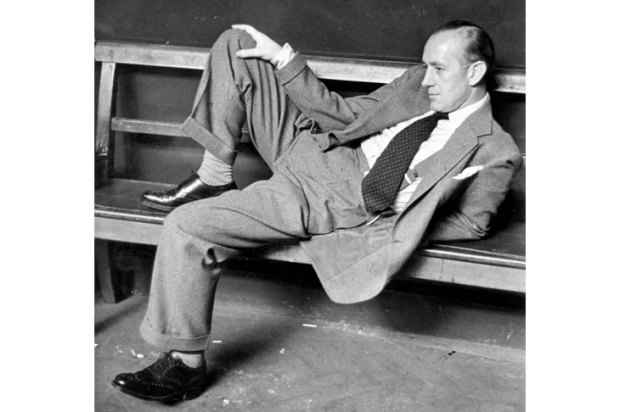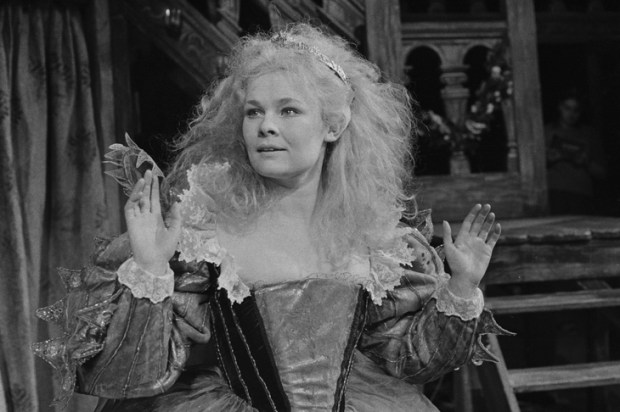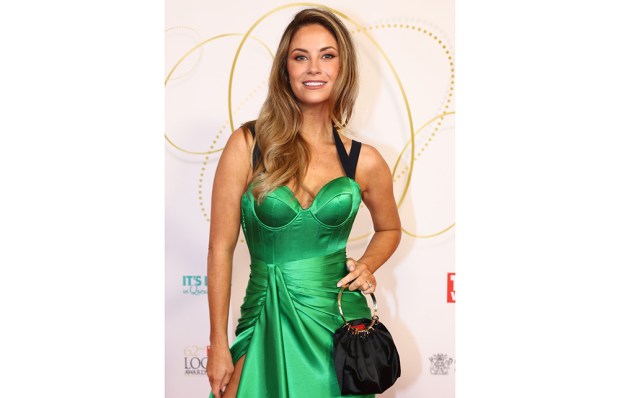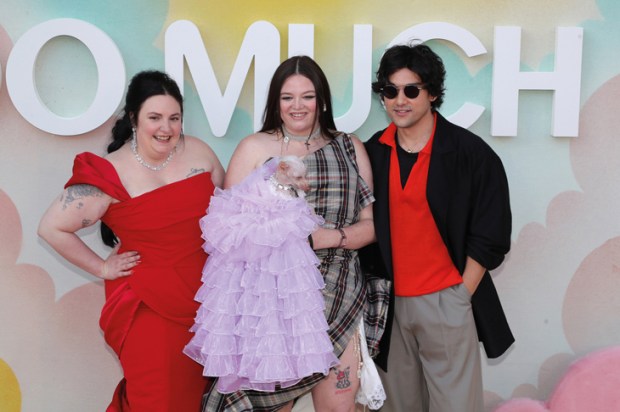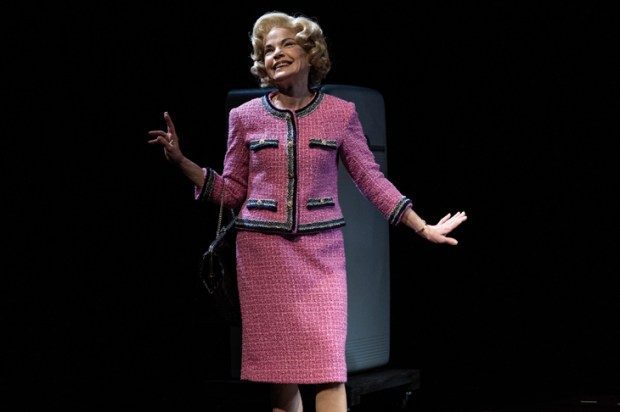We’re preoccupied with the horrors of what can happen with the internet and Australia thinks it can lead the world in protecting children by restricting access. Perhaps it’s worth pausing with YouTube. YouTube is where you’ll find the great Siobhán McKenna performance from Ulysses. It’s where you’ll find the studio recording of Richard Burton’s 1964 Broadway Hamlet, one of the greatest spoken word recordings ever made. And YouTube may enthral you with an hour-long interview with Simon Heffer about his biography of Enoch Powell, the man who gave the notorious ‘rivers of blood’ speech. Heffer is famous for his books about language but this was a spellbinding account of a remarkable figure.
Heffer emphasised that Enoch Powell was not xenophobic. He spoke a swag of languages and the speech was a matter of premonition from a man who spoke the languages of India and ranked some of its civilisation more highly than our own but who thought the concentration of immigrants in Britain was dangerous. The nuances of what can safely be said about immigration are nightmarish – look at Germany, look at Angela Merkel – and it’s true that Enoch Powell ended up representing Protestant Ireland at a time when the British Army saw its duty being the defence of the Catholics and both sides – the provisional IRA and the militant Orangemen – took murder as their prerogative.
But what a man Enoch Powell was. He was made Professor of Greek at Sydney University when he was 25 and his intellectual and scholarly attainments were dazzling.
Enoch Powell had been A.E. Housman’s student at Cambridge and Heffer said his own poetry is in the manner of Housman.
In the second world war he enlisted as a private and ended as the youngest brigadier in the British Army. In 1945 he voted Labour – for Attlee, not Churchill. He thought the British Empire was over with independence for India in 1947 but he became a Tory again.
It’s hard to overstate how powerful this bit of YouTube with its simple interview technique was. Heffer provides for his young interlocutor and for the YouTuber who stumbles upon this jewel of an interview what a vibrant, complex character Enoch Powell was. He points out for instance that Tony Benn, the man who renounced a hereditary peerage to sit in the Commons and the man who was feared as the harbinger of a more left-wing government than Britain could bear always had the deepest respect for the ‘rivers of blood’ man. Simon Heffer says the only parliamentarian he ever witnessed who was Enoch Powell’s equal, the only person with the same effortless command, was the man who never led the Labour party but who had extraordinary intellectual equipment, Denis Healey.
Enoch Powell’s economics were nineteenth-century Whiggery – not at all unsympathetic to Margaret Thatcher – but what a man this herald of undreamt of racial tension was.
It’s one of a thousand examples of why we should be careful of getting rid of YouTube. It’s interesting to see that Belvoir is doing what they describe as a re-imagining of Calderón’s Life is a Dream (La vida es sueño) which will pose the biggest kind of challenge because it is simply one of the greatest plays ever written though its author Calderón de la Barca is contemporary with Racine rather than Shakespeare.
There is a superbly actable version of it by John Barton who did the famous re-jig of Shakespeare’s Henry VI for Peter Hall’s The Wars of the Roses in 1963 (filmed two years later) and which he said was the most significant thing he ever did. Barton and Hall later fell out over a subsequent production of Tantalus – Barton’s epic play about the Trojan War.
That wonderful actress Helen McCrory told me she was in a production of one of the great Spanish plays – Fuenteovejuna perhaps – where the cast had mastered, tentatively, the opening steps of the tango. They dutifully demonstrated their tentative Anglo-Saxon gesture of cultural goodwill before a Spanish audience. The theatre full of Spaniards replied with absolute self-conscious mastery.
The internet makes it easy to compare versions. The great Spanish work contemporary with Shakespeare is Cervantes’ Don Quixote which was translated by an Irishman, Thomas Shelton, in 1616, the year Shakespeare died (and Shakespeare was aware of it).
Back in the 1980s there was a production with Paul Scofield as the Don using Shelton’s translation with its Jacobean prose which came across for all the world like blank verse. There’s God’s plenty of translations. Smollett’s version was praised by Salman Rushdie because he captures the jokes in Cervantes’ one-liners and there’s nothing wrong with the old Penguin by J.M. Cohen which Graham Greene used for Monsignor Quixote – filmed for British television with Alec Guinness as the saintly priest and Leo McKern as the down-to-earth mayor. We’re lucky an actor of Peter O’Toole’s stature did the film of Man of La Mancha.
Meanwhile, the cultural heavyweights are lining up. Nadia Tass – a goddess of a director – is doing Max Friedlich’s Job at Red Stitch in September and from 6 October Kate Mulvany is doing D’Arcy Niland’s The Shiralee – once a Peter Finch film – with Josh McConville and Aaron Pedersen.
There’s a new book by Nicholas Rothwell in collaboration with his partner Alison Nampitjinpa Anderson which fits no category though Yilkari: A desert suite sounds continuous with that strange commingling of exquisiteness and tough spiritual intensity with which we have come to associate this formidable duo.
The latest example of bush noir, Last One Out by Jane Harper, is out on 14 October.
Readers will also be fascinated to watch Untamed, a devastating and magnificently made thriller with Eric Bana and Sam Neill giving an antipodean edge to this story of drama and desolation in the inscrutable territory of Yosemite National Park.
If you want to gauge the relationship between the popular and the artistic, try Filmmakers Thinking in which Melbourne’s Adrian Martin puts together directors’ broodings about what they do.
Incidentally, Sydney in November gets to see the Red Stitch production of Who’s Afraid of Virginia Woolf? with Kat Stewart and her real-life husband David Whiteley. Of course there are endless possible variations of casting in any great play. Some of us would have killed to see Kathleen Turner as Martha and it’s funny to reflect that Albee said his dream team – however much we think of Burton and Taylor – was actually James Mason and Bette Davis.
Got something to add? Join the discussion and comment below.
You might disagree with half of it, but you’ll enjoy reading all of it. Try your first month for free, then just $2 a week for the remainder of your first year.


